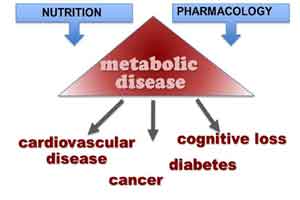- Home
- Editorial
- News
- Practice Guidelines
- Anesthesiology Guidelines
- Cancer Guidelines
- Cardiac Sciences Guidelines
- Critical Care Guidelines
- Dentistry Guidelines
- Dermatology Guidelines
- Diabetes and Endo Guidelines
- Diagnostics Guidelines
- ENT Guidelines
- Featured Practice Guidelines
- Gastroenterology Guidelines
- Geriatrics Guidelines
- Medicine Guidelines
- Nephrology Guidelines
- Neurosciences Guidelines
- Obs and Gynae Guidelines
- Ophthalmology Guidelines
- Orthopaedics Guidelines
- Paediatrics Guidelines
- Psychiatry Guidelines
- Pulmonology Guidelines
- Radiology Guidelines
- Surgery Guidelines
- Urology Guidelines
Fast eaters twice likely to develop metabolic syndrome

People who eat slowly are less likely to become obese or develop metabolic syndrome, a cluster of heart disease, diabetes, and stroke risk factors, according to preliminary research presented at the American Heart Association's Scientific Sessions 2017, a premier global exchange of the latest advances in cardiovascular science for researchers and clinicians.
Metabolic syndrome occurs when someone has any of three risk factors that include abdominal obesity, high fasting blood sugar, high blood pressure, high triglycerides and/or low HDL cholesterol, said, Japanese researchers.
The researchers evaluated 642 men and 441 women, average age 51.2 years, who did not have metabolic syndrome in 2008. They divided the participants into three groups depending on how they described their usual eating speed: slow, normal or fast.
- After five years, the researchers found:
- Fast eaters were more likely (11.6 percent) to have developed metabolic syndrome than normal eaters (6.5 percent) or slow eaters (2.3 percent);
- Faster eating speed was associated with more weight gain, higher blood glucose, and the larger waistline.
"Eating more slowly may be a crucial lifestyle change to help prevent metabolic syndrome," said Takayuki Yamaji, M.D., study author and cardiologist at Hiroshima University in Japan. "When people eat fast they tend not to feel full and are more likely to overeat. Eating fast causes bigger glucose fluctuation, which can lead to insulin resistance. We also believe our research would apply to a U.S. population."

Disclaimer: This site is primarily intended for healthcare professionals. Any content/information on this website does not replace the advice of medical and/or health professionals and should not be construed as medical/diagnostic advice/endorsement or prescription. Use of this site is subject to our terms of use, privacy policy, advertisement policy. © 2020 Minerva Medical Treatment Pvt Ltd